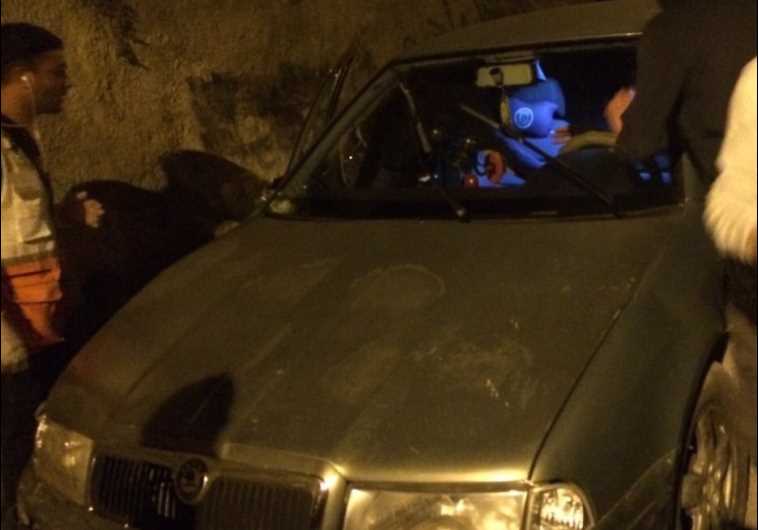Palestinian suspect from Shuafat arrested for Jerusalem vehicular terrorist attack
Three Border police officers were injured when a vehicle struck them in Jerusalem's a-Tur neighborhood on Saturday.
 Car used in suspected terror attack in Jerusalem(photo credit: PALESTINIAN MEDIA)
Car used in suspected terror attack in Jerusalem(photo credit: PALESTINIAN MEDIA)